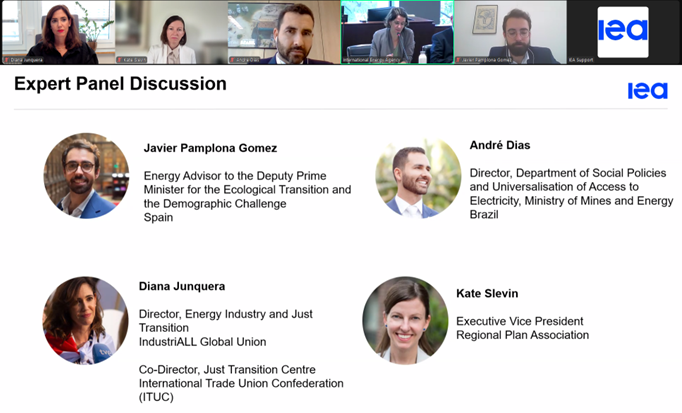18 July, 2024The International Energy Agency’s (IEA) new report Strategies for Affordable and Fair Clean Energy Transitions, underscores that, despite the significant upfront investments required for transitioning to a clean energy system, the overall costs will eventually decrease for consumers due to much lower operating expenses. According to the IEA these findings will be crucial for policymakers, as it demonstrates that accelerating transitions can lead to a cheaper and more sustainable energy system.
On July 10, 2024, the IEA hosted a webinar to officially launch their new report, , and the creation of the Global Commission on People-Centred Clean Energy Transitions. The event brought together global experts to address the critical issue of making clean energy transitions both equitable and cost-effective.
The webinar highlighted the primary concerns of policymakers: how to ensure that investments in clean energy are affordable and increase access to energy services for all, particularly marginalized communities. The discussion revolved around making policies fairer and ensuring that the costs and benefits of clean energy transitions are equitably distributed across different population segments.
Javier Pamplona, Energy Advisor to the Deputy Prime Minister for the Ecological Transition and the Demographic Challenge in Spain, shared experiences with its just transition strategy, particularly the coal phase-out initiative. Spain has achieved a 90 per cent employment rate and successfully restored territories impacted by the transition to renewable energy. Pamplona underscored the importance of engaging stakeholders, especially in rural areas, and highlighted economic growth through wind, hydrogen storage, and industrial activities.
André Dias, the director of the department of social policies and universalisation of access to electricity at Brazil's ministry of mines and energy spoke about their program, which has connected over 10 million homes to electricity, prioritizing vulnerable communities. He shared on the complexities of planning and coordinating energy transitions and highlighted Brazil's efforts to install off-grid renewable systems in remote Amazon areas. Dias emphasized the necessity of public consultation and social dialogue for effective policy implementation, using Spain’s approach as a model.
Diana Junquera, director of ernergy and Just Transition at IndustriALL and Co-Director of the Just Transition Centre (JTC) at the International Trade Union Confederation (ITUC), stressed the importance of a just transition in the energy sector to reduce inequalities and secure stable, quality jobs. She highlighted the importance of assessing the social impact and invest in infrastructure in the transition to new industries.
“It is essential that energy transitions do not leave anyone behind. We must ensure that new jobs created in the renewable sector are stable, quality jobs that reduce existing inequalities. We need comprehensive energy frameworks and inclusive decision-making processes involving all stakeholders,”
said Junquera.
Kate Slevin, Executive Vice President of the Regional Plan Association in the US, discussed New York City's clean energy investments and the importance of affordable, reliable transportation for lower-income communities. She highlighted the challenges of political opposition to congestion pricing and emphasized the need for partnerships and directing congestion pricing revenue to marginalized areas to address environmental justice concerns.
The webinar highlighted the urgent need for inclusive and fair energy transitions. Experts stressed a holistic approach, strong government support, and long-term partnerships to attract new industries and ensure that transitions benefit all societal segments. Some of the key approaches discussed included making clean energy technologies more affordable, engaging in public consultation, and implementing just transition strategies that mitigate socio-economic impacts on vulnerable communities.
For more details on the IEA’s report and the new Global Commission, visit the IEA’s Strategies for Affordable and Fair Clean Energy Transitions and IEA’s Global Commission on People-Centred Clean Energy Transitions: Designing for Fairness.


